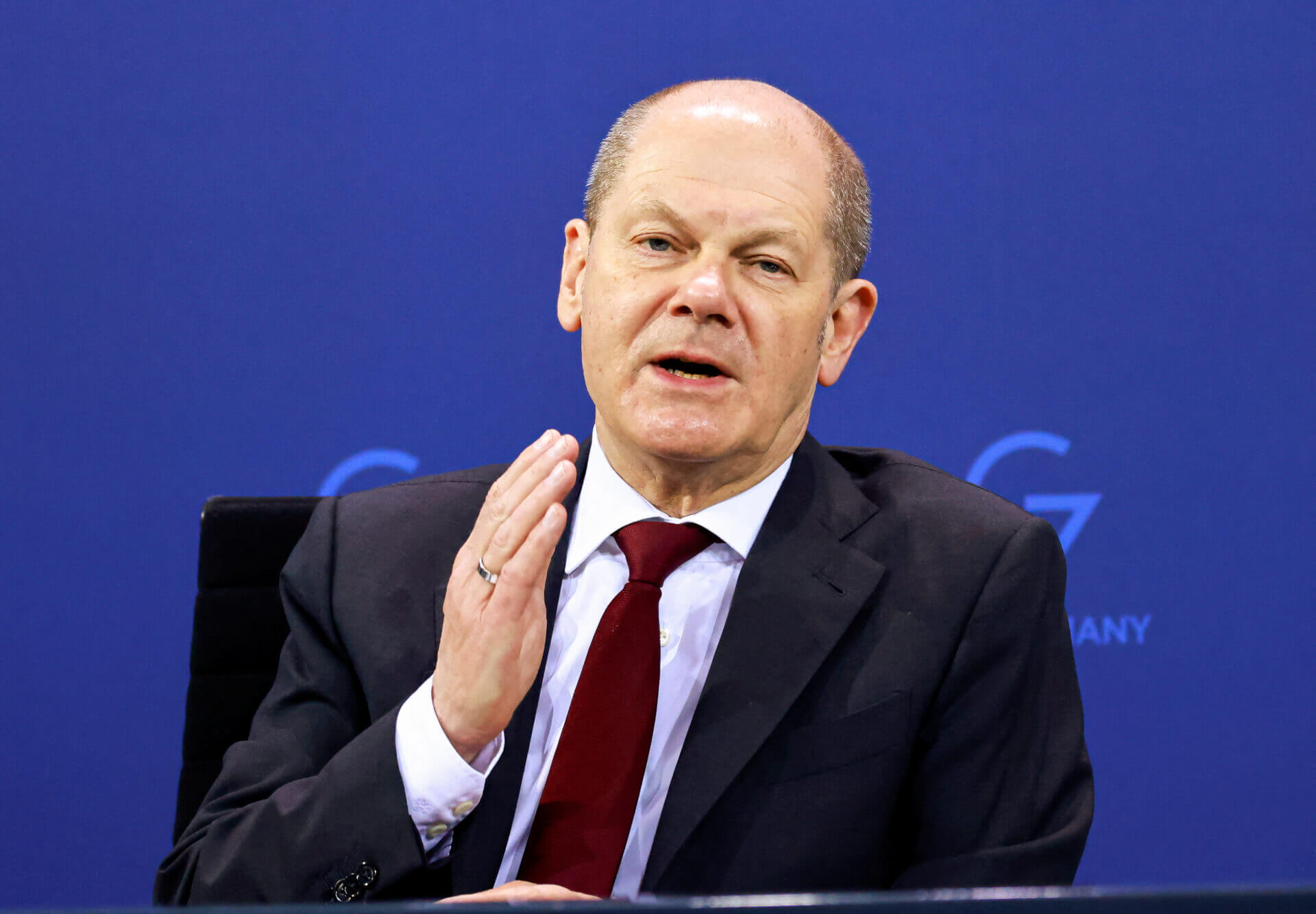Ukrainian Ambassador to Germany Andrij Melnyk criticised German Chancellor Olaf Scholz for acting like a “sulky liver sausage” for refusing to visit Kyiv over the perceived mistreatment of President Frank-Walter Steinmeier, whom Ukraine has accused of having close ties with the Kremlin.
In an interview with public broadcaster ZDF late on Monday, Scholz confirmed on Monday that he would not be travelling to Ukraine anytime soon after Ukraine refused to host German President Frank-Walter Steinmeier.
Scholz criticised the decision, saying that “It can’t work that a country that provides so much military aid, so much financial aid ... you then say that the president can’t come. That the president of the Federal Republic of Germany … has been disinvited, stands in the way of the matter,” Scholz said.
German Chancellor Olaf Scholz was speaking in Düsseldorf today about the need to support Ukraine with money and weapons.
— Visegrád 24 (@visegrad24) May 1, 2022
The crowd booed loudly, chanting slogans about pacifism. pic.twitter.com/EEL1dzUvwC
He said the treatment of Steinmeier was unacceptable, particularly given that Germany is “a country that provides so much military assistance, so much financial assistance, that is needed when it comes to the security guarantees that are important for Ukraine in the future.”
He thus stressed that the incident now "stands in the way" of his own possible visit to Kyiv, which has been visited by several officials in recent weeks, including British Prime Minister Boris Johnson, European Commission President Ursula von der Leyen, United States Secretary of State Antony Blinken and Secretary of Defence Lloyd Austin, and Slovenian PM Mateusz Morawiecki, Czech PM Petr Fiala, Slovenian PM Janez Janš, Polish President Andrzej Duda, Latvian President Egils Levits, Lithuanian President Gitanas Nausėda, and Estonian President Gitanas Nausėda, and Polish Deputy PM Jaroslaw Kaczynski.
In response to the development, Ukrainian Ambassador Melnyk said Scholz’s rejection is “not very statesmanlike.” Speaking to the DPA news agency, Melnyk said the Chancellor had acted like a “sulky liver sausage.” “This is about the most brutal war of extermination since the Nazi invasion of Ukraine, it’s not kindergarten,” he added.
A majority of Germans share @OlafScholz's concern that giving heavy weapons to Ukraine could trigger WWII. A Forsa poll found that 56% link the threat of a global conflagration to Berlin's decision to send tanks to Ukraine, which is only supported by 44% of the surveyed. pic.twitter.com/8qPvczMzai
— Bojan Pancevski (@bopanc) May 4, 2022
Despite these developments, Scholz has assured that Germany will continue to “help and support” Ukraine, noting that his government has “contributed to the fact that the Ukrainian army … can now hold out for so long against an overwhelming opponent.”
Last month, the German president announced that he would be joining high-level officials from Poland, Latvia, Lithuania, and Estonia for a visit to Kyiv. However, he then cancelled his trip, saying he was told that his presence was “not wanted.” His comments came shortly after German newspaper Bild quoted a Ukrainian diplomat as saying, “We all know of Steinmeier’s close relations with Russia here… He is not welcome in Kyiv at the moment. We will see whether that changes.” Ukraine has also previously criticised Scholz for his “weak response to the [Ukraine] crisis.”
Zelensky, for his part, denied any of this happened; instead he said that the German government had not approached him about Steinmeier’s visit in the first place. Scholz described the incident as “irksome” at the time and has evidently kept his grudges.
Ukrainians approve of foreign leaders:
— Alexander Khrebet/Олександр Хребет (@AlexKhrebet) April 29, 2022
🇵🇱 Duda 92%
🇬🇧 Johnson 87%
🇺🇸 Biden 86%
🇹🇷 Erdoğan 76%
🇱🇹 Nauseda 75%
🇫🇷 Macron 75%
🇪🇺 von der Leyen 66%
🇩🇪 Scholz 30% positive, 54% negative. Steinmeier 26% positive, 44% negative.
🇧🇾 Lukashenko 96% negative
🇷🇺 Putin 98% negative#Ukraine
Despite the Steinmeier snub, however, conservative German opposition leader Friedrich Merz travelled to Kyiv on Tuesday to meet with Ukrainian officials and to see the destruction caused by the Russian army.
Keeping in mind these relatively frosty ties with Ukraine, Germany has attempted to make amends. Last Thursday, the lower house of the German parliament approved a petition backing the delivery of “effective weapons and complex systems including heavy arms” to Ukraine to counter the Russian invasion. The delivery of heavy weapons, including anti-aircraft systems and armoured vehicles, followed weeks of Germany refusing to send tanks to Ukraine over fears that Russia would interpret it as a declaration of war.
More recently, on Sunday, German Vice-Chancellor and Minister for Economic Affairs and Climate Action Robert Habeck announced that the country could become fully independent of Russian crude oil imports by the end of summer, adding that the government has already reduced gas, oil, and coal imports from Russia. This, too, followed weeks of Minister of Finance Christian Lindner saying that Germany was firmly against imposing an oil embargo on Russia as it would not be able to withstand the economic impact. Now, however, Berlin has said it is ready to join an EU-wide embargo on Russian oil.

